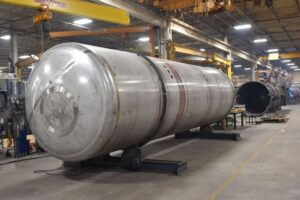A manufacturing technique called precision plastic injection moulding has revolutionised a number of sectors by making it possible to produce intricate plastic parts with remark able accuracy, speed, and consistency. This method offers the adaptability required to produce long-lasting, premium plastic parts that satisfy particular industry needs, whether they are small medical devices or big automotive components. A few of the major industries that greatly profit from precision plastic injection moulding are listed below.
intricate plastic parts with remark able accuracy, speed, and consistency. This method offers the adaptability required to produce long-lasting, premium plastic parts that satisfy particular industry needs, whether they are small medical devices or big automotive components. A few of the major industries that greatly profit from precision plastic injection moulding are listed below.
1. Automobile Sector
Precision plastic injection moulding in automotive sector is used to create parts that adhere to stringent performance and durability requirements. Vehicles are increasingly using plastic parts to cut weight, increase fuel economy, and save production costs. Manufacturers can produce a large variety of vehicle parts, including engine covers, lighting housings, dashboards, and bumpers, with a high degree of accuracy and consistency thanks to precision moulding. Additionally, this technology facilitates the manufacturing of intricate components that must adhere to precise standards in order to guarantee vehicle safety and performance, such as sensor housings and air vents.
2. The Healthcare and Medical Sector
Precision is essential in the medical and healthcare industry since equipment and gadgets must adhere to stringent safety and effectiveness regulations. Many medical devices, such as syringes, surgical tools, drug delivery systems, and diagnostic gadgets, are made using plastic injection moulding. These products are safe for patient usage because the precision moulding process guarantees that they fulfil the necessary tolerances. Additionally, parts that are biocompatible, long-lasting, and chemical-resistant can be produced thanks to the employment of specific medical-grade materials in the moulding process. Additionally, injection moulding facilitates high-volume production, which makes it perfect for the healthcare industry, which frequently needs disposable items.
3. The Electronics Sector
Precision injection moulding for electronics sector produce casings, connections, and housings for a variety of devices. In order to produce small, complex, and dependable parts, manufacturers use injection moulding in response to the current demand for lightweight, compact electronic equipment. Parts for game consoles, laptops, smartphones, and other consumer devices fall under this category. Because precision plastic moulding makes it possible to create parts with intricate geometries, manufacturers are able to satisfy the exacting requirements for durability and accuracy in electronic components. These parts are also safer and more durable due to the use of heat-resistant and flame-retardant polymers.
4. The Aerospace Sector
In order to decrease aircraft weight and increase fuel efficiency without sacrificing safety, the aerospace industry requires lightweight yet durable components. In order to produce complex parts that satisfy the exacting requirements of the aerospace industry, precision plastic injection moulding is necessary. Interior parts, brackets, ducting, and even engine parts that need to endure high pressures and temperatures are examples of common moulded parts. Manufacturers can choose high-performance polymers that are lightweight and corrosion and wear resistant because to the variety of injection moulding materials. In aircraft applications, where dependability and safety are crucial, these qualities are crucial.
5. Consumer Goods Industry
Plastic injection moulding is frequently utilised in the consumer goods industry to create items that are affordable, long-lasting, and aesthetically pleasing. With an emphasis on durability and aesthetics, precision moulding makes it possible to create a wide range of products, such as toys, kitchenware, packaging, and household appliances. The procedure is perfect for creating high-quality consumer goods that satisfy both functional and design requirements since it can accommodate a large range of colours, textures, and finishes. Given that a lot of consumer goods are manufactured in large quantities, injection moulding is the ideal option due to its effectiveness and affordability.
6. Telecommunications Industry
For the production of parts for networking equipment, including fibre optic connections, antenna housings, and cable assemblies, the telecommunications industry depends on precision plastic injection moulding. These components must be extremely precise because even a small error might affect network dependability and signal quality. Tight precision parts may be produced via injection moulding, which is essential in the telecom industry. Additionally, manufacturers are able to satisfy the changing needs of telecommunications technology by producing robust, lightweight components.
7. Food and Beverage Industry
Injection moulding is utilised in the food and beverage sector to create sanitary, long-lasting, and safe containers, packaging, and other plastic components. By ensuring that food-grade polymers adhere to strict health regulations, precision moulding lowers the possibility of contamination. This covers the manufacturing of products including cutlery, bottle tops, lids, and food containers. The accuracy of the moulding process guarantees customer safety and freshness by enabling tight seals, unambiguous labelling, and packaging that can resist storage and transportation circumstances.
Conclusion
With its benefits in accuracy, speed, and flexibility, precision plastic injection moulding has emerged as a key procedure in many different industries. This technology assists sectors that place a high value on quality, durability, and cost-effectiveness by enabling the manufacturing of intricate and highly detailed parts with consistent reliability. The versatility of plastic injection moulding makes it a vital tool in today’s production environment, whether it is used in consumer goods, automotive, medical, electronics, aerospace, telecommunications, or food and beverage industries. Precision plastic injection moulding will surely be essential to overcoming new obstacles and improving product quality in a variety of industries as they continue to evolve.